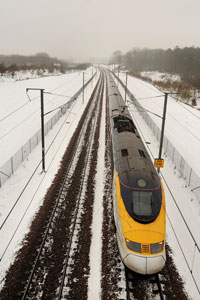With leisure travel having moved from being a rare luxury to a regular experience for many people over the last decade, we wanted to understand how their travel purchase behaviour is changing and how this compares to other areas of consumer expenditure in a global recession.
The first surprise from our findings is that the recession has in fact increased, not decreased, the desire to travel.?During what is the most severe economic downturn for a generation, people are prioritising travelling above other discretionary spends.?Consumers are cutting back on purchases of physical goods such as clothing and electricals, even on eating out, so they can maintain the number of holidays they take.?It seems at a time of greater economic pressure and uncertainty, the value that holidays deliver in allowing people to relax and unwind, and to spend quality family time is held above conspicuous consumption. The greater the pressure, the greater the need is to get away and unwind.
That said, the economy is having an impact on travel behaviour – people are demanding that their money delivers more than ever and are assuming a more cautious and considered approach to spending. Travellers want to minimise the financial risk involved and are adopting a number of strategies to achieve this: greater research and planning, sticking with tried and tested destinations, staying closer to home, and taking on board more advice. It seems holidays to?‘near Europe’ and within the UK are substituting holidays further afield.
The most striking finding of the report, however, is around the issues of trust and value in the travel industry. The past decade has seen a massive emphasis by the travel industry on promoting ever lower prices as the core message for leisure travel. To achieve this objective, over the last couple of years customers have increasingly been expected to pay extra if they use payment cards, take a suitcase, check in at the airport, want to board first, etc. The research findings indicate that as an industry we seem to have gone too far with this as a model. Two thirds of respondents in our ‘Travel Nation’ report said that ‘travel companies or operators who advertise deals that you have little chance of booking’ give the whole industry a bad name, and over half of the sample said that they ‘no longer pay much attention to prices advertised’ because you can rarely book them.
These findings are hardly a ringing endorsement – in fact they are a clear sign that a lack of transparency in pricing has left consumers feeling frustrated and has tainted the reputation of the industry as a whole. The industry must now work hard to reconnect with consumers.
We all know from our own experiences of travelling that value for money and peace of mind are high up the agenda. Unfortunately, it seems that this is a difficult balance to find in the travel industry. It is essential for the future of every business that its customers inherently trust it and therefore repeat their custom. Trust is however dependent on a commitment to both transparency and value.
Our findings have led us to question whether the travel industry has lost sight of the end goal – helping consumers to have the best experience possible. I believe that a focus on value at any cost has tainted the reputation and integrity of the industry. In this climate people want to maximise experience and minimise risk.?The industry needs to rebuild trust, to undertake a genuine commitment to transparency and provide added value.
With consumers valuing even more the benefits that holidays can deliver, the travel industry is in a good position. But consumers are also saying loud and clear ‘please offer value and please be more honest and transparent in how you price and promote yourself ‘.?This seems a clear and common sense demand to which the industry must respond in order to be successful in the new economic climate.





